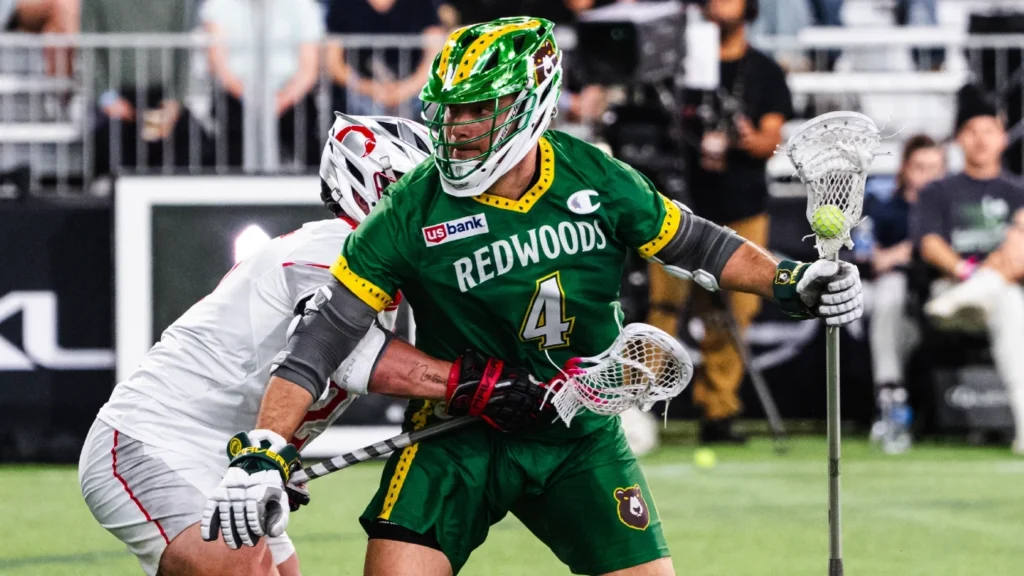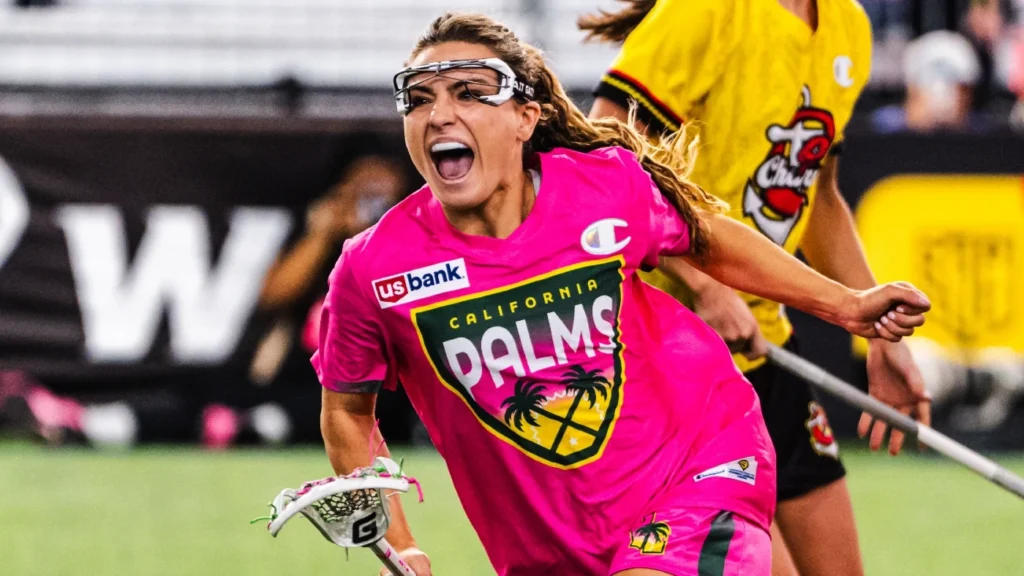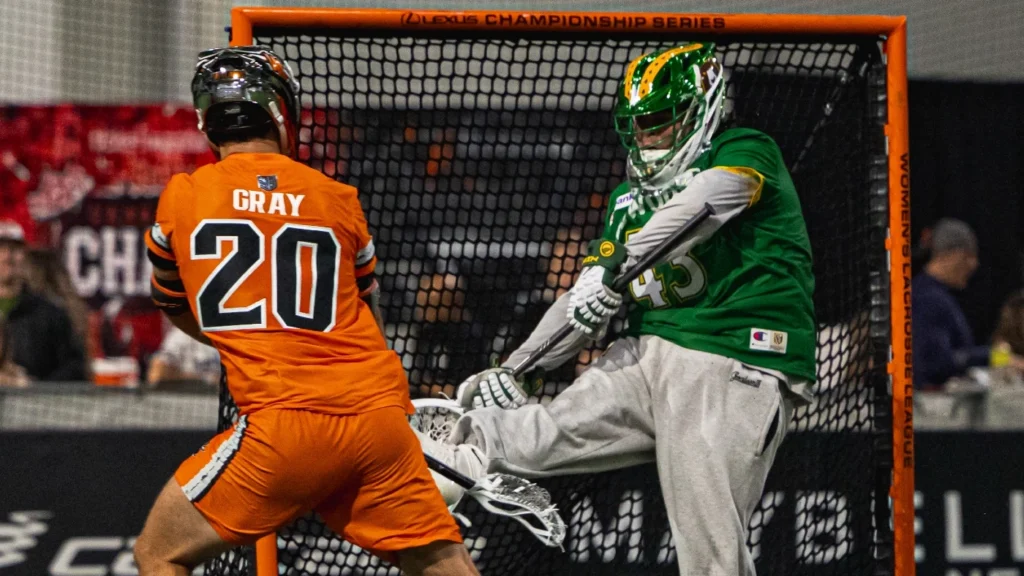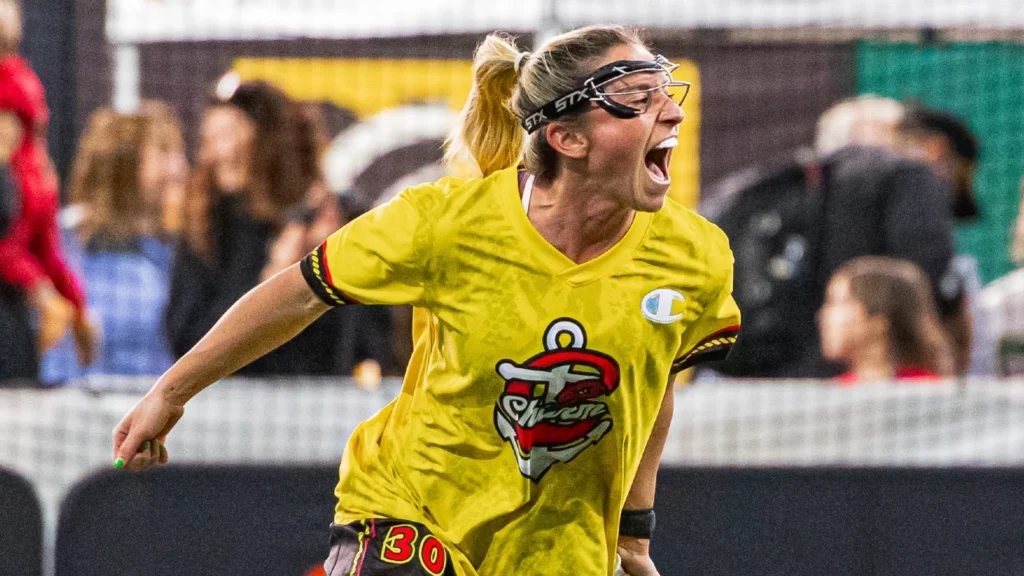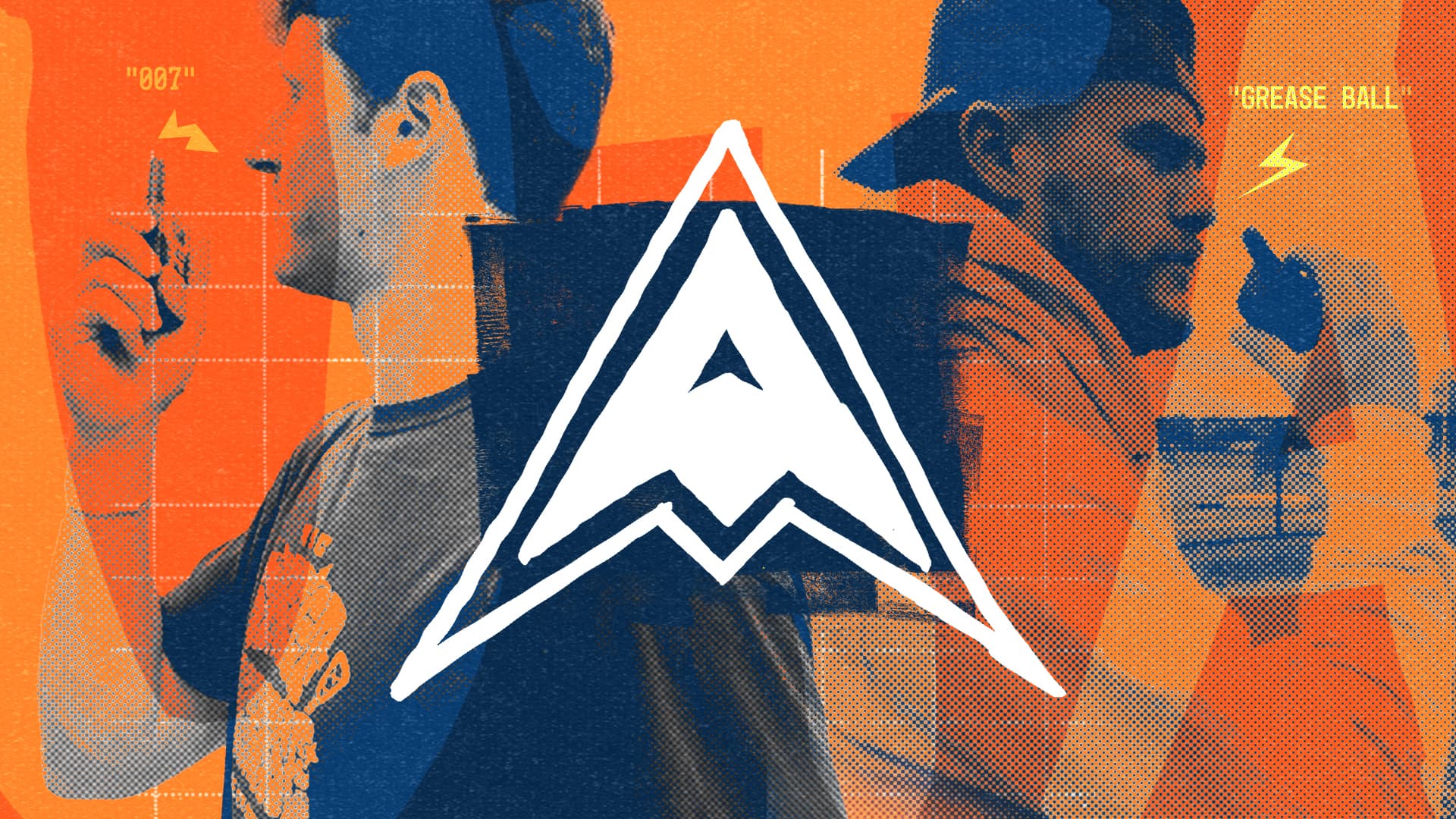
‘Grease Ball,’ ‘El Matador’ and the walkie talkie craze that bonded Archers at training camp
By Zach Carey | May 31, 2025
As Brett Dobson approached the UAlbany dining hall deep in the campus flooded with ‘60s post-modern architecture, the neon pink walkie talkie in his right hand crackled. Five of Dobson’s teammates had spotted him as they exited the dining hall 30 yards away.
“We’ve got Grease Ball approaching, over,” came one of their voices through the airwaves.
Dobson, upon hearing his call sign, lifted the walkie talkie to respond.
“Confirmed, I’m 30 seconds out. Over.”
Dobson’s message radioed down to the collection of Archers in the dining hall a floor below in a common practice for the two-time reigning champs in the week leading up to the start of their 2025 season.
The idea to bring handheld radios to training camp came from Tom Schreiber back in January. As he, fellow captain Ryan Ambler, assistant coach Brian Kavanagh and retired defensive legend Matt McMahon brainstormed ideas to build team chemistry during camp, the idea of bringing walkie talkies to Albany was an immediate hit among the club’s veteran core.
Originally, Schreiber brought four walkie talkies to camp to split them across various dorm apartments. They quickly became so popular that the team ordered overnight-shipped 12 more.
By week’s end, the team’s primary mode of communication was via walkie talkie. That’s how they coordinated their late-night card games, determined who was going to the dining hall when and updated each other on what was happening in different parts of the UAlbany campus. They enjoyed using the walkie talkies to crack jokes at any time from anywhere. Some players would say a humorously heartfelt goodnight to each other on the walkie talkies. When a fire alarm test went off in the dorms one morning, Ambler radioed in.
“We’re under attack,” he informed his teammates.
The Archers even used the walkie talkies when driving around Albany in a convoy of vehicles, such as on the way to their championship ring ceremony. They informed each other of their location on the road and about any potential obstacles in their respective paths.
“We’re just trying to keep everybody safe on the roads,” one anonymous veteran Archer said with a chuckle. “You never know if there’s a truck coming or anything like that.”
The frequent use of the handheld radios has corresponded with guys limiting their phone usage for the week. Some players even left their phones behind in the UAlbany dorms when leaving for practices or a meal.
“We definitely use them a lot less,” Connor Maher noted. “I have not been on my phone very much this week. Mostly walkie talkies.”
In open space, the walkies had a three mile communication radius. With the density of trees in the wooded area between the UAlbany dorms and the stadium/dining hall side of campus, they worked less consistently. But, within the dorms, the walking paths from the dorms to the playing fields, and over to the dining hall, they worked perfectly.
Issues quickly arose early in camp, however, regarding the supply of batteries for the handheld radios. Piper Bond in particular didn’t have any batteries to use three days into camp.
“Pipe, we need you by seven o'clock,” Schreiber told him that day. “We need you to be up and running.”
So, Bond turned to Dobson, now referred to as “Grease Ball,” for a battery solution.
“You got any extras?” Bond asked him.
“Yeah,” Dobson, a Type 1 diabetic, responded. “I pulled some [batteries] from my insulin pump, so I got a couple more.”
“Are you sure?” Bond said. “This is OK to take?”
“Yeah, no, I’m fine,” he said.
With Dobson’s insulin pump batteries in hand, the Archers managed to keep the walkie talkie culture alive.
“That’s what makes him a great teammate,” another Archer laughingly pointed out.
As the week continued, the team’s obsession with the walkie talkies and their call signs only grew. The team’s short-stick defensive midfielders were particularly taken by the radio language, even continuing to use it on the field without the walkie talkies in hand.
“We’re getting into it now, over,” Maher commented as the team stretched pre-practice one afternoon.
With the walkie talkies’ mass popularity came call signs for each and every member of the Archers organization. Dobson is “Grease Ball.” Schreiber is “El Matador.” Head coach and general manager Chris Bates’ is the “Godfather.” Mike Sisselberger’s is “LTOP,” an abbreviation for “Lettuce, tomato, onion and pickle,” referencing the second half of his last name.
There wasn’t much rhyme or reason to selecting the call signs. Some have more tangible meaning than others. Bond, whose legal first name is James, goes by “007.” Backup goalie Nick Washuta’s call sign is “Rubber Ducky,” which is a callback to when, as a freshman at the University of Vermont, his name autocorrected to “Washtub” in a team group chat. Since joining the Archers, that’s from “Washtub,” to “Tub,” and now to his new walkie talkie call sign.
Dyson Williams, who the team previously called “Dyse” as a shortened nickname, became “Yahtzee.” James Shipley, previously nicknamed “Ship,” goes by “Black Pearl,” over the radiowaves in an ode to Jack Sparrow’s ship in “The Pirates of the Caribbean.”
Some of the call signs were assigned – such as “Spider,” for Brendan Lavelle – but many were self-selected. Most are appropriate. Others, well, not so much. Across the board, though, the call signs became the de facto nomenclature for the players.
“It keeps it casual and close,” Kavanagh said. “The professional side of this thing is everybody’s already very self-motivated. The more loose you can keep it and the more familiar you can keep it the better off you are.”
“It’s hilarious,” Bond added. “I think it’s great. It’s a good way to just show, especially for young guys, that we’re just normal people.”
Schreiber and Utah’s veterans are explicit in their efforts to make new players comfortable in their winning locker room. Year after year, the Archers have succeeded in integrating rookies into their team almost immediately. A lot of that is a product of the team being as good as it is and the talent it brings in matching that standard. But, much is also a result of coordinated yet fun-loving gimmicks that allow everyone to be a part of the team dynamic in a unique way.
“It just makes it that much easier to bring the young guys into the fold,” Kavanagh explained.
“This is just a way to kind of get people involved and do something together,” Bond said.
This is one chapter of many in the book that is the Archers’ chemistry-building exercises across six-plus seasons. Hand-in-hand with those endeavors is a commitment to keeping many of their team-building practices under wraps. Some Archers players were easier to talk to about the walkie talkies than others. The veterans on the team mostly prefer to keep their cards close.
Schreiber’s only comment on the walkie talkie craze he’s created, for instance?
“El Matador has no comment.”
Utah fully expects to continue to use the walkie talkies throughout the 2025 regular season. They represent both the pointed effort the team makes to establish its culture and its fun-loving nature.
“It speaks to their leadership in terms of trying to get everybody involved,” Bond explained. “I could see how guys like Tom, in that ilk of professional players that have been amazing for a long time, could stand by yourself and [be great] alone. But that’s not the kind of guy he is.”
Schreiber is one of the game’s all-time greats, and he’s all-business between the lines. He maintains that mission off the field, yet it takes a different form within the Archers locker room as the team embraces a playful attitude.
Whether it be because of a lockdown defense spearheaded by a top-two goalie in the world, an offense with a swath of must-pole threats that give defensive coordinators nightmares, a collection of multi-colored walkie talkies and personalized call signs or all of the above, the Archers are dialed in as they hunt a third straight title.
